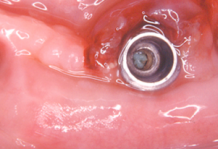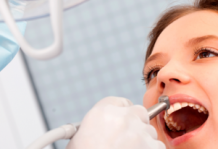Patients with dental implants require proper care and maintenance on a regular basis to prevent peri-implant complications.
There are several reasons justifying implant maintenance care:
Peri-implant tissues
Patients with dental implants require proper care and maintenance on a regular basis to prevent peri-implant complications.
There are several reasons justifying implant maintenance care:
Peri-implant tissues
Given the special features of the design and surface of implants, combined treatment including mechanical and chemical therapies is essential.
Below are some suggested treatment protocols, although

The periodontal maintenance phase forms part of periodontal treatment, and its objective is to prevent recurrence and to ensure long term preservation of the periodontal health achieved

The restorative phase is the second part of the periodontal treatment plan, and its goal is to reconstruct lost structures using procedures including occlusal adjustment, orthodontic treatment

The periodontal treatment plan starts with the aetiological phase whose purpose is to stop disease progression by controlling pathogenic oral biofilm, eradicate systemic and local aetiological factors

So far, most studies linking periodontal disease to systemic diseases have focused on diabetes, cardiovascular disease and adverse pregnancy outcomes. However, there are other systemic diseases and

During pregnancy, due to hormonal changes, there is a certain systemic propensity to periodontal problems. The most pathogenic bacteria of the biofilm, (Socransky’s orange and

Periodontitis and diabetes are chronic diseases of ever-growing worldwide prevalence. Ninety percent of the population is estimated to have some type of oral infectious disease, including

The relationship between periodontal disease and cardiovascular disease has been extensively studied over the past decades through in vitro studies, animal models, case-control studies, cohort studies, randomized

Gingivitis and periodontitis are two stages of periodontal disease, which are generally chronic, infectious and inflammatory in nature, are located in the tooth support tissues and which